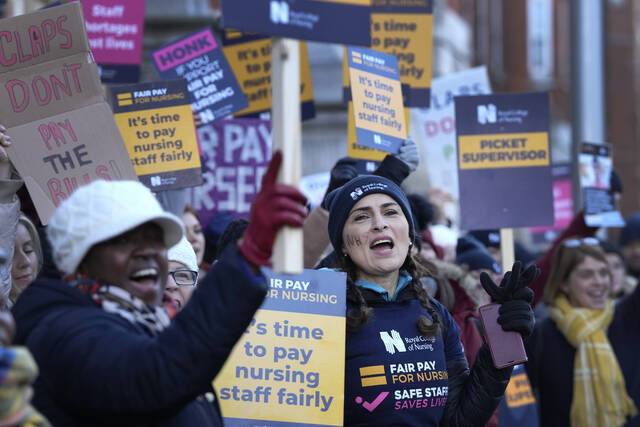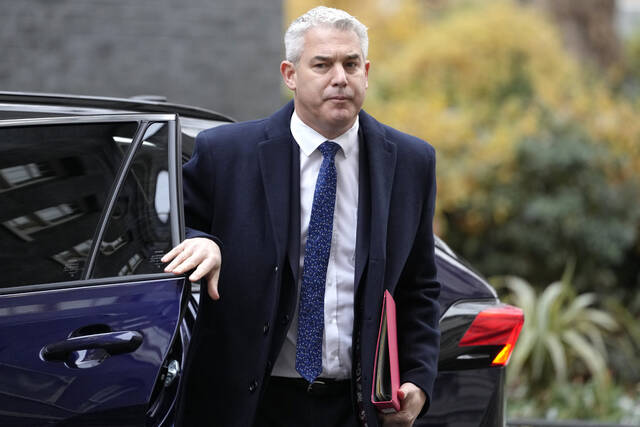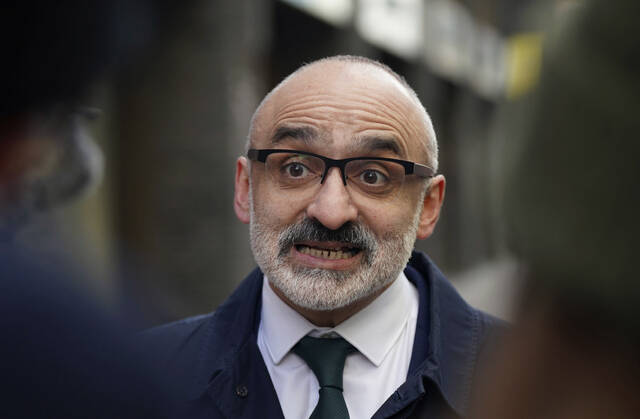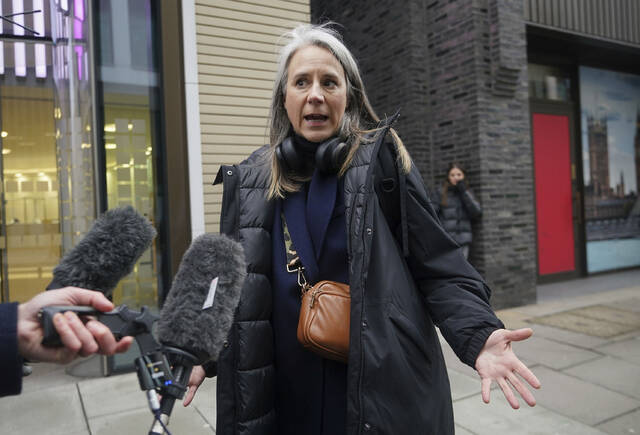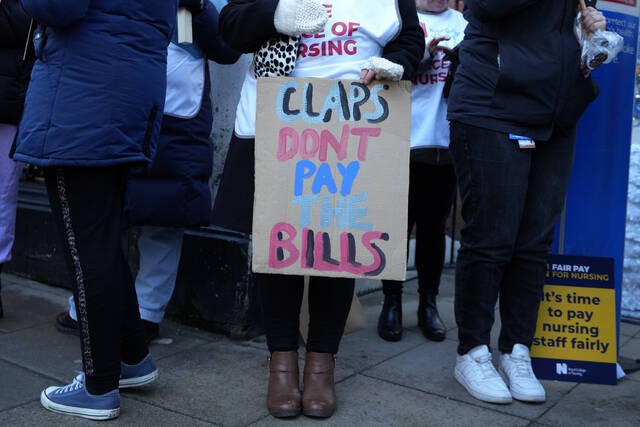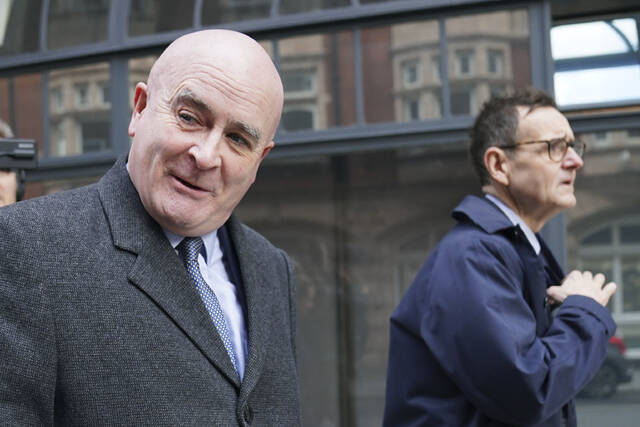U.K. government meeting unions in bid to end wave of strikes
LONDON — U.K. government ministers met trade union leaders on Monday in a bid to end a wave of strikes that has hobbled the rail network and strained the overburdened health system.
There were small signs of progress but no breakthrough after a meeting between Health Secretary Steve Barclay and health care unions. Other ministers are meeting with railway unions that have staged months of strikes, and teaching unions considering classroom walkouts.
“There was definitely a change of tone today,” said Sarah Gorton of UNISON, which represents some health workers. However, Onay Kasab, negotiator for the Unite union, said the talks had been a “missed opportunity.”
Unions said strikes by nurses and ambulance staff planned for this month would go ahead. Nurses are due to walk out on Wednesday, and ambulance workers next week, while junior doctors are voting on whether to strike later this year.
Joanne Galbraith-Marten, of nurses’ union the Royal College of Nursing, said that “there is no resolution to our dispute yet in sight.”
“Ministers have a distance to travel to avert next week’s nurse strike,” she said.
Rachel Harrison of the GMB union said the talks “fell well short of anything substantial that could stop this week’s strikes.”
Britain is going through its biggest strike wave for decades, with airport baggage handlers, border staff, driving instructors, bus drivers and postal workers among those who have walked off their jobs to demand higher pay.
Nurses and ambulance workers are locked in a dispute with the state-funded National Health Service as they seek raises to keep pace with the soaring cost of living. Inflation in the U.K. hit a 41-year high of 11.1% late last year, driven by sharply rising energy and food costs.
The government says double-digit raises would drive inflation even higher.
Pat Cullen, head of the Royal College of Nursing union, said she saw a “chink of optimism” in Prime Minister Rishi Sunak’s statement on Sunday that he was willing to discuss “affordable and responsible” salary demands. The Conservative government has so far insisted it will only discuss pay rates for the 2023-24 financial year that starts in April, rather than the current year.
Sunak’s spokesman, Max Blain, said the government knew that “global economic headwinds are putting household budgets under pressure” and that the prime minister “has said we are happy to listen to those concerns.”
But the government has angered unions with plans to make it harder for key workers to strike by setting “minimum safety levels” for firefighters, ambulance services and railways that must be maintained during a strike.
The strikes have added to strains on a health system already facing multiple pressures, including rising demand for care after pandemic restrictions were eased; a surge in flu and other winter viruses after two lockdown years; and staff shortages from pandemic burnout and a post-Brexit lack of European workers in the U.K.
Thousands of hospital beds are occupied by people who are fit to be discharged but have nowhere to go because of a dearth of places for long-term care. That has led to ambulances stuck outside hospitals with patients who can’t be admitted, and in turn to people with health emergencies waiting hours for ambulances to arrive. Health leaders say the delays have likely led to hundreds of deaths.
Remove the ads from your TribLIVE reading experience but still support the journalists who create the content with TribLIVE Ad-Free.

